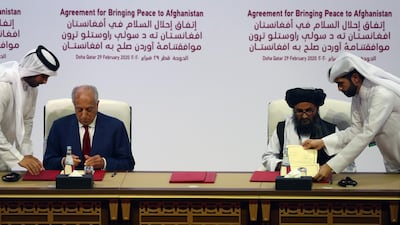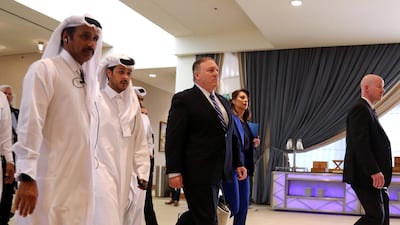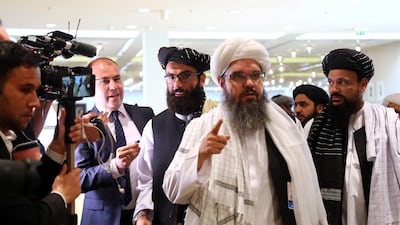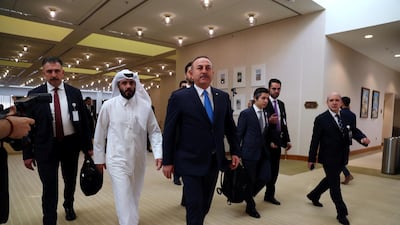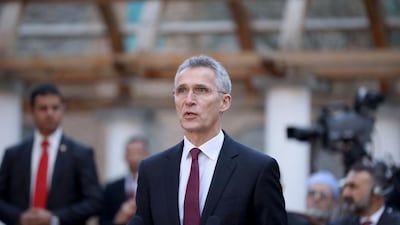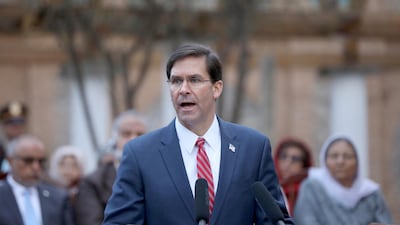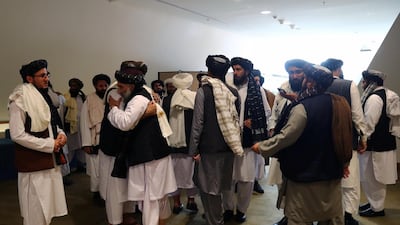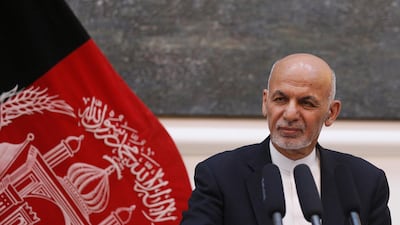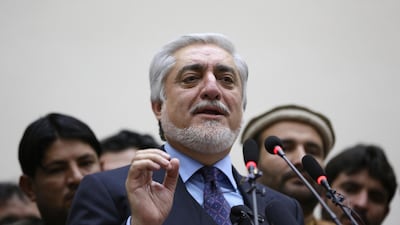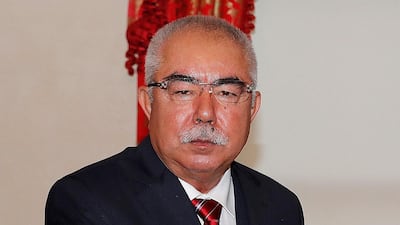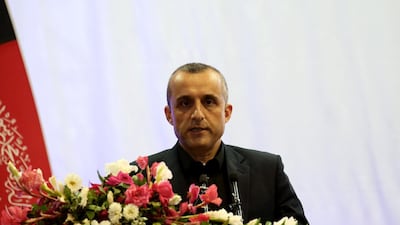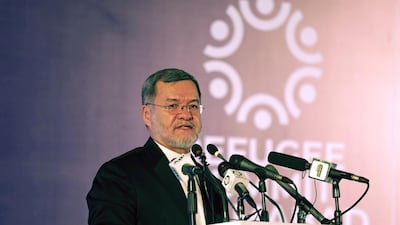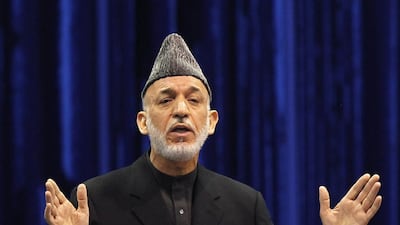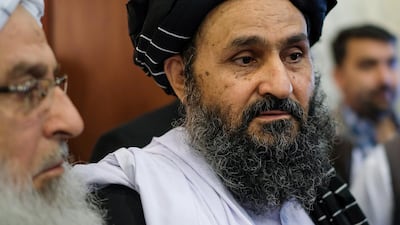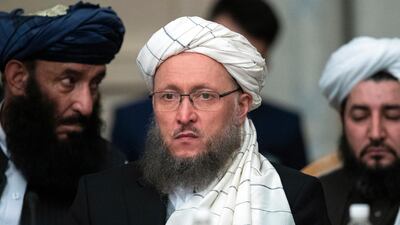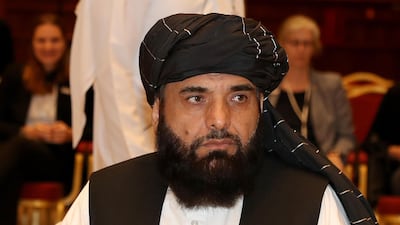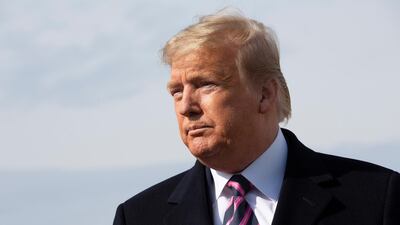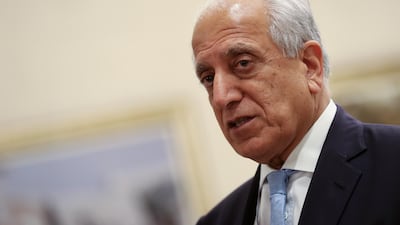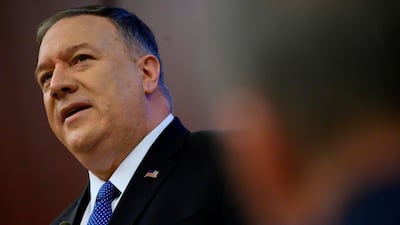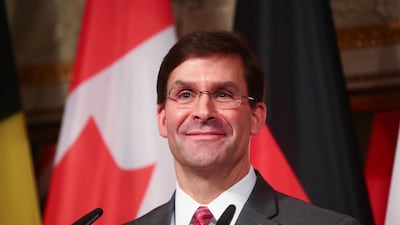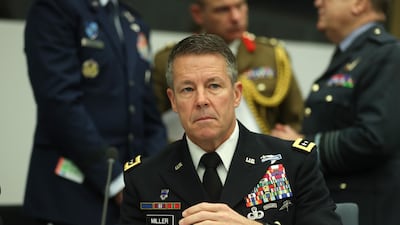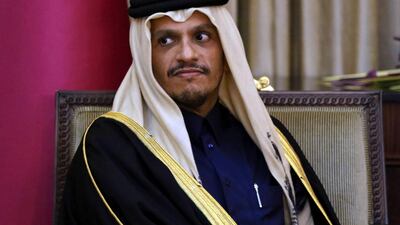The United States and the Taliban signed a deal on Saturday to start ending America’s longest war.
The deal, signed in Doha, laid out how the US will begin withdrawing troops with a reduction from about 12,000 soldiers to 8,600 over the next 135 days and a full withdrawal within the next 14 months.
The condition-based withdrawal will depend on the Taliban upholding their promise to cut ties with international terrorist groups such as Al Qaeda and to not use groups threatening the safety of the US and its allies.
The war, that started with the US invasion in Afghanistan in October 2001, shortly after the September 11 attacks, has killed tens of thousands of people, as well as around 3,500 US and coalition troops.
US Secretary of Defence Mark Esper, who visited Kabul on Saturday, said that the agreement will “pave the way for Afghan negotiations, so that a permanent ceasefire may be achieved. This will only happen if Afghans join together to embrace this opportunity. “
Mr Esper flew to Kabul for an afternoon to meet with President Ashraf Ghani and Nato Secretary General Jens Stoltenberg.
Ahead of the signing ceremony in Doha, they addressed the nation in Kabul.
“Thanks to Trump’s leadership, we are making progress in ending America’s longest wars,” Mr Esper said, adding that “we join with real hope for the future of Afghanistan.”
At a press conference at the White House, US President Donald Trump said Afghanistan's neighbours should help maintain stability following the agreement.
"There hasn't been a moment like this. We've had very successful negotiations. We think they'll be successful in the end," he said.
"The other side is tired of war. Everybody is tired of war...I'll be meeting personally with Taliban leaders in the not-too-distant future. And we'll be very much hoping that they will be doing what they say they are going to be doing. They will be killing terrorists."
For over a year, America and the Taliban have been negotiating a deal that could end the fighting and see international troops withdraw. At a ceremony in Doha on Saturday, Zalmay Khalilzad, the lead US negotiator, signed the deal with the Taliban's political leader Mullah Abdul Ghani Baradar.
In detail, the document lays out the next steps for the country and while it doesn't end the war overnight, it offers a way forward for both US troops withdrawal and the beginning of an intra-Afghan dialogue between the Taliban and the Afghan government.
“In the last week, we have seen a reduction in violence,” President Ghani said from his palace in Kabul. “This will help in direct negotiations with the Taliban. All people of Afghanistan are looking forward to permanent peace.”
Although a first step has been laid out, many believe that intra-Afghan talks might pose a bigger challenge.
Hours before the deal, the Taliban ordered all its fighters in Afghanistan "to refrain from any kind of attack ... for the happiness of the nation."
Taliban chief Hibatullah Akhundzada called on all fighters to respect the deal and said all male and female compatriots will be given their "due rights”.
Mr Stoltenberg, the head of the international alliance that has a significant presence in Afghanistan, said the body supports the agreement and is ready to drawdown forces in accordance with the terms.
"Peace is long and hard and we have to be prepared for setbacks and spoilers ... Nato supports this peace deal," said Mr Stoltenberg.
While he said the force was ready to reduce its numbers, it could increase their presence again if the situation deteriorated.
According to the agreement signed in Doha, American forces could leave Afghanistan within 14 months.
But Mr Esper made clear that all were interlinked and that all of them must be implemented for the deal to go ahead.
“I would like to say it will full clarity: all the points in the agreement are conditional. They will only be implemented if the Taliban respects and implements the conditions. The withdrawal of forces depends on it,” he said during a ceremony in Kabul acknowledging the signing of the deal in Doha.
Mr Ghani also sought to ease concerns over the next phase for the country if international forces start to leave.
“We have security agreements with the US and Nato and they have been approved by the National Assembly of Afghanistan and these agreements remain intact,” he said.
Secretary of State Mike Pompeo was in Doha to oversee the signing ceremony.
He said the agreement will mean nothing if concrete action is not taken on commitments and promises.
Mr Pompeo added that the Taliban have shown they have the will to be peaceful with the successful implementation of a reduction in violence agreement over the last week.
Shortly after the deal was signed, the United Nations said they were ready to support an Afghan-led peace process that includes women, minorities and the youth. One of the main concerns for many in Afghanistan is the future of hard-fought rights for these groups if the ultra-conservative Taliban are allowed back into government.
The UN also urged the continuation of the reduced violence agreement that came into force a week ago.
From Kabul, Mr Esper touched on the reduced violence agreement.
"Some incidents happened, but most lived a peaceful week," he said. "This will help in direct negotiations with the Taliban and all people of Afghanistan are looking forward to a permanent peace in Afghanistan."
What the US-Taliban deal includes:
There are currently around 12,000 US soldiers in Afghanistan and approximately 17,000 more from 39 Nato countries and its allies.
Under the declaration agreement, seen by The National, the US will reduce military forces to 8,600 and implement other commitments in the agreement within 135 days.
According to the document signed on Saturday, officially called the ‘Joint Declaration between the Islamic Republic of Afghanistan and the United States of America for Bringing Peace to Afghanistan’, Washington said it will work with partners, including Nato, to reduce their forces at the same time. The final pull-out will take place within 14 months.
Meanwhile, the Taliban and the Kabul government will begin talks on the future of the country and the US will facilitate discussions and aim for confidence-boosting measures such as prisoner releases by both sides.
“We are committed to start direct negotiations after the declaration in Doha has been signed. We have sent a contact team to Doha to discuss the details and the agenda for the direct negotiations between the government and the Taliban, but preparations are generally complete,” said Afghan State Ministry of Peace Senior Advisor Shoaib Rahim, adding that a 15 member negotiation team was created months ago after rounds of consultations. “They are prepared to start talks whenever decided.”
The deal also reportedly included a clause for the US and the Afghan government to release up to 5,000 prisoners and the Taliban to release up to 1,000 prisoners by March 10.
The US aims to remove sanctions on Taliban members by August 2020, working with the United Nations Security Council.
The US and the Taliban seek positive relations with each other.
The US will request the UN Security Council recognise and endorse the agreement and related deals.
The deal says the US will remain committed to good relations and economic cooperation with the government in Kabul.
Officials and experts said Mr Esper's meeting in Kabul on Saturday was aimed at reassuring the Afghan government of the ongoing US commitment to the country ahead of the deal.
“No agreement is perfect, and the US-Taliban deal is no exception,” said the Crisis Group’s President Robert Malley. “But it represents the most hopeful step to end a war that has lasted two decades and taken countless American and especially Afghan lives. It ought to be celebrated, bolstered and built upon to reach a genuine intra-Afghan peace”.
